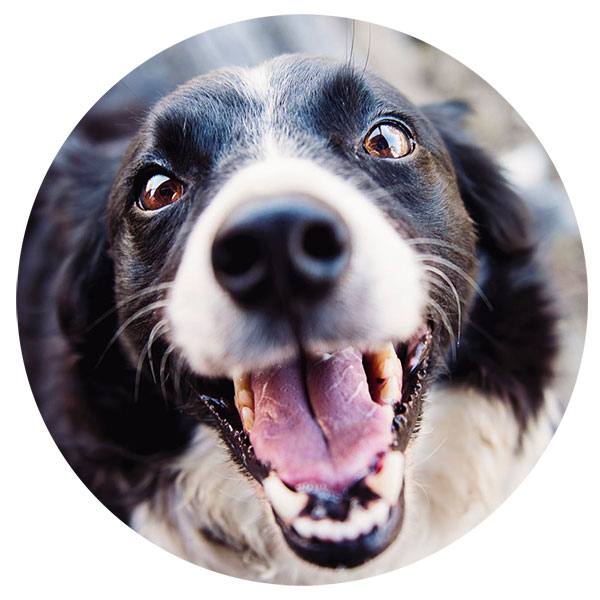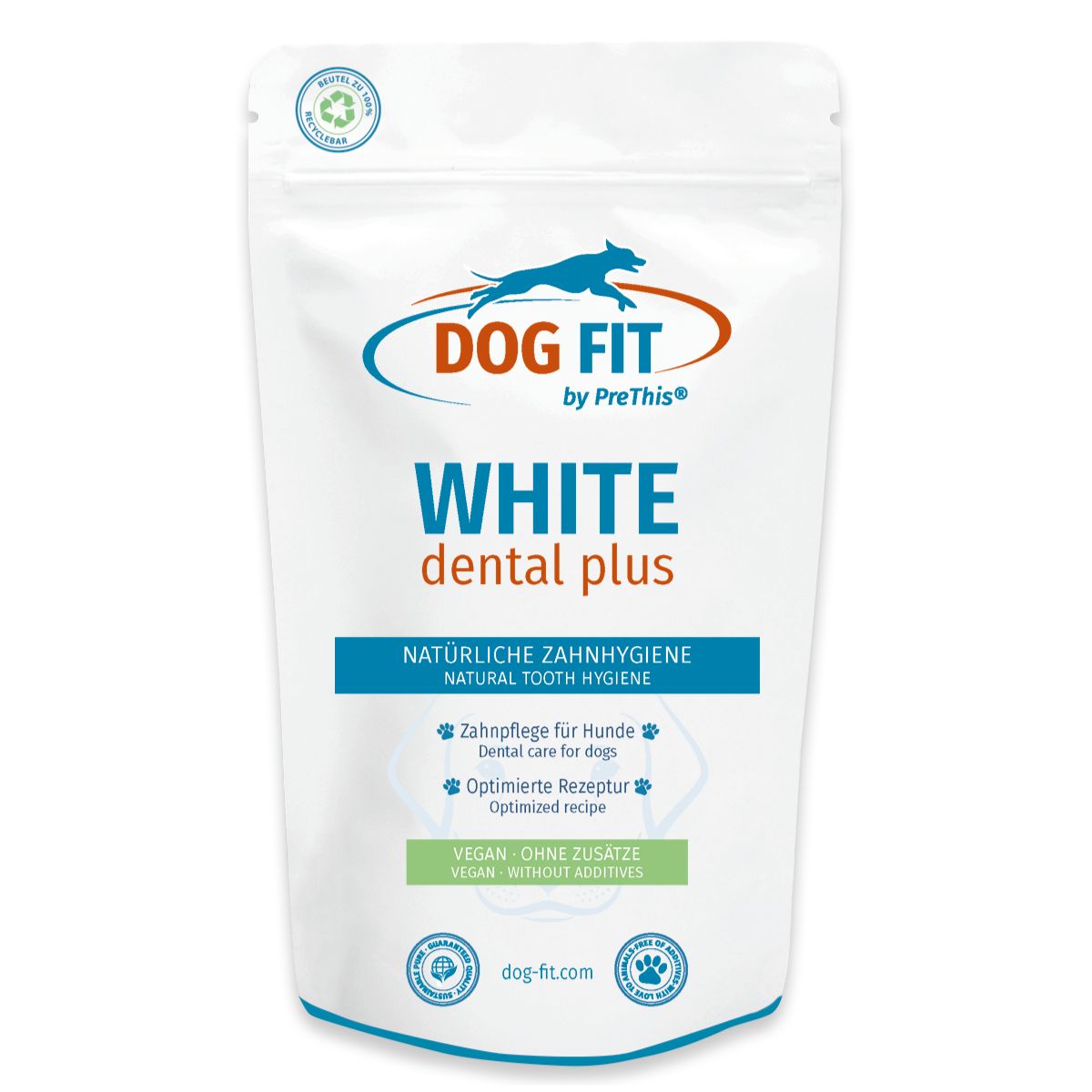Tartar and plaque in dogs
Why is dental care important for dogs?
In wild dogs and wolves, tearing and chewing prey—including fur, tendons, and bones—takes over natural tooth cleaning. These components act like a biological toothbrush. Our domestic dogs, however, are usually fed processed food, especially wet or dry food, which has little abrasive effect on the teeth. This makes it easier for plaque to build up and harden into tartar in dogs.
How does tartar form in dogs?
Numerous bacteria live in dogs’ mouths, which, together with food residue and saliva, form a soft plaque. If this isn’t removed regularly, it mineralizes due to components in the saliva and turns into hard tartar. The rough surface of the tartar, in turn, promotes the further accumulation of plaque—a cycle begins.
Possible Consequences
Tartar in dogs is more than just a cosmetic problem. Possible consequences include:
- Gum inflammation (gingivitis)
- Recession of the gums and painful inflammation
- Loosening and loss of teeth
- Early detection and regular dental care are therefore crucial to avoid serious health complications.
Detecting tartar in dogs
Typical signs of tartar or a disturbed oral flora are:
- Yellowish-brown deposits on the teeth, especially at the gum line
- Bad breath (halitosis)
- Reddened gums or minor bleeding
- Defensive reactions when eating hard food or opening the mouth
What dog owners can do
Many dog owners try to improve their dog’s dental health with toothbrushes, special dog toothpastes, dental snacks, or toys These methods can be helpful, but they have their limitations:
- Toothbrush & toothpaste: Only effective against plaque with regular use and early habituation – many dogs do not accept them.
- Dental snacks: These often contain sugar, grains, or artificial additives and are not always suitable – a critical look at the ingredients is important here.
- Dental care toys: Encourages chewing, but usually only removes soft plaque and not harder tartar.
Regularly checking the mouth, proper feeding, and targeted natural care methods can often be more effective and sustainable.
Removing Tartar from Dogs – Professional Cleaning
If heavy tartar has already formed, professional tartar removal by a veterinarian is often the only option. This is usually performed under general anesthesia and is associated with certain risks, especially in older or pre-existing dogs. After cleaning, new tartar can form again after a short time – therefore, preventative measures for dental care in dogs are particularly important.
Natural Dental Care and Prevention
In addition to professional dental cleaning, daily dental care at home plays an important role in preventing tartar in dogs. This includes:
- A species-appropriate, natural diet without fillers or additives
- Chewing on natural chews such as beef hide, dried rabbit ears with fur, or dried pieces of meat, which can contribute to mechanical cleaning
- Targeted use of natural care methods, for example, plant-based supplementary feed for oral hygiene
The Influence of Oral Flora
The dog’s oral flora is closely linked to digestion and the immune system. A stable balance of microorganisms in the mouth can help minimize plaque and keep the gums healthy. A balanced diet, a healthy intestinal flora, and regular care routines help maintain balance in the mouth.
Veterinary check-ups and individual consultation
Regular check-ups with a veterinarian are important to assess the condition of the teeth, gums, and oral cavity and to detect problems early on. Dogs with chronic plaque, inflamed gums, or already lost teeth should be closely monitored. Individual consultation with a veterinarian or animal health practitioner will help determine the best strategy for your dog’s dental care.
Dental health and quality of life
Healthy teeth contribute significantly to a dog’s overall well-being and quality of life. DiscomfortCongested tartar and associated inflammation can lead to chronic pain, loss of appetite, and other health problems. Regular dental care should therefore be a part of every dog owner’s daily routine.
Spending time with your dog builds closeness and trust. With simple routines, care, and a loving attention to your four-legged friend’s needs, your bond will remain strong—and every day together will be a special experience.

